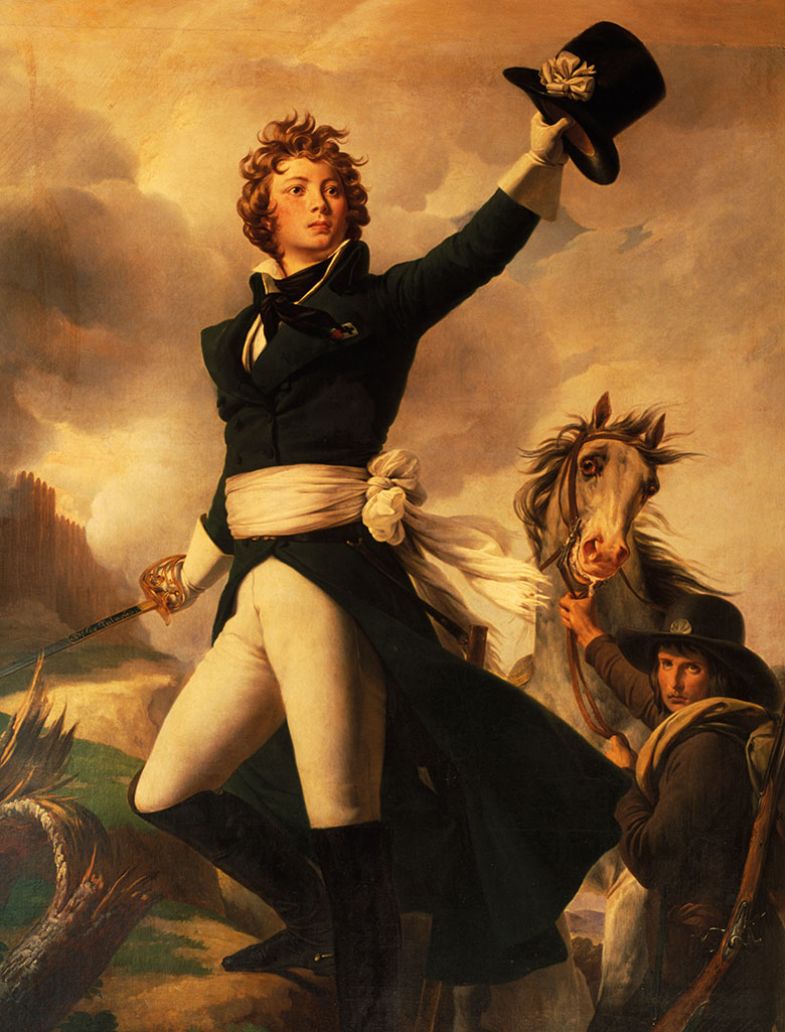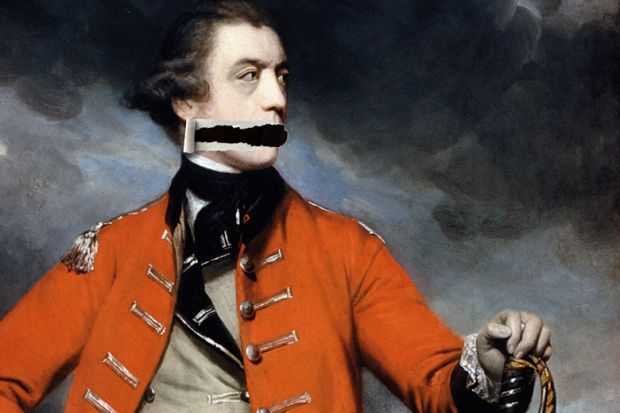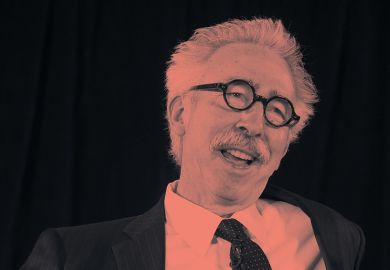When the chancellor of the University of Wisconsin-La Crosse invited porn star-turned-sex educator Nina Hartley to speak on campus last year, he expected that there would be “some controversy”.
Something Joe Gow did not anticipate, however, was the reaction it provoked from his boss, the university system president Ray Cross, who claimed in a letter that the event “puts all of our funding at risk” given the potential pushback from politicians opposed to pornography.
A month later, the board of regents announced pay rises for 10 of the 13 chancellors in the system. Of the three who missed out, one had already received a raise earlier in the year. Another was under investigation by the system in connection with her husband’s alleged sexual harassment of a former student and former employees, and resigned shortly afterwards. The third was Gow.
“I’m curious to see, over time, whether they rethink that [decision], because the symbolism of it would suggest that they didn’t like a speaker I invited and they wanted to be punitive,” says Gow, a journalism and speech communication expert, who invited Hartley to speak as part of National Freedom of Speech Week. “We have a very clear policy on freedom of expression and what I did was entirely consistent with that.”
He adds that “when you bring in an interesting and controversial speaker, that enhances the reputation of the institution”. And he also notes the contrast between Hartley’s defence of pornography, which was “not hurtful to anyone”, and the insults to various minority groups dished out by right-wing activists Ben Shapiro and Milo Yiannopoulos during their campus tours.
The last-minute cancellation of the latter’s planned appearance at the University of California, Berkeley in 2017 on public safety grounds drew the condemnation of the recently inaugurated Donald Trump. “If U.C. Berkeley does not allow free speech and practices violence on innocent people with a different point of view – NO FEDERAL FUNDS?” the president tweeted, while the university’s then-chancellor Nicholas Dirks came in for heavy criticism from right-wing groups for his supposed repression of free speech.
But Gow’s treatment could be argued to raise questions about how much free speech and academic freedom university leaders themselves should be permitted. After all, Hartley had previously spoken at other university campuses, including Berkeley, Harvard University and Dartmouth College, “without attracting the same level of controversy and scrutiny”.
“I am pretty confident that if a [rank-and-file] faculty member or a staff member invited Nina Hartley to come – which certainly could have happened – and used money from their department to fund it – which, again, would not be that unusual – they would not be sanctioned in the way that I have been,” Gow says. And while he issued an apology for inviting her, and personally reimbursed the university for her $5,000 (£3,925) speaking fee, he was only “sorry about the media sensationalism”, and not about his choice of speaker.
The question of whether the norms of academic freedom should apply to senior managers is not new but has become more pertinent in recent years in light of the increasing marketisation of higher education, the prominence of university rankings and the rise of social media – all of which combine to make universities ever more sensitive about their reputations.
The fundamental academic values of free speech and truth-searching, which can be “controversial and inefficient”, are “in contrast to the market values of efficiency and getting people prepared for the workplace”, Gow says. “There’s no denying that when one is a leader of a university or college you are part of the establishment. And I think that does make people in my kind of role more conservative and [anxious] to avoid controversy in general. With the marketisation of higher education, we’re likely to see more of that caution, I would think.”
According to Jeffrey Flier, distinguished service professor of physiology and medicine at Harvard Medical School and former dean of the school, it is “substantially more difficult now to speak out as an institutional leader in any fashion that varies significantly from the standard opinion of the community than it was [20 or 30 years ago]. When I became a dean, many people said: ‘Oh wow, you have the ability to do this or that to advance public views on various topics’. That’s not exactly what I’ve found.”
Flier blames “the tribalist separation of different perspectives engendered and furthered by social media”, as well as the “more severe” enforcement of “politically correct thinking” on campus for making modern academic leaders less likely to speak out. Even now, three years after standing down from his deanship, he is still told by some to be careful what he says, on the grounds that people will still associate his opinions with Harvard Medical School.
Another notable illustration of the perils of speaking out can be seen in Andrew Potter’s forced resignation as director of the McGill Institute for the Study of Canada in 2017 after writing an article for Maclean’s magazine that described the overnight stranding of 300 cars on a Montreal highway in the middle of a blizzard as reflective of Quebec’s “pathologically alienated and low-trust society”.
The article’s perceived slight to French Canadians provoked outrage. In his resignation letter, Potter said “the ongoing negative reaction within the university community and the broader public to my column” had forced him to “come to the conclusion that the credibility of the institute will be best served by my resignation”.
The university agreed. In an interview in the Globe and Mail newspaper, McGill principal and vice-chancellor Suzanne Fortier claimed that “when you’re an academic administrator, there are things you must be more prudent about doing”. In an echo of Potter’s own statement, she added that “the credibility of the institute” had been “deeply affected” by his article, which she worried could cause some politicians to steer clear of future public policy events at the university.
However, an investigation by the Canadian Association of University Teachers concluded in November that, in promulgating such a justification, the university had undermined the freedom not just of Potter but of its entire academic staff. David Robinson, executive director of the CAUT, told Times Higher Education at the time that “it seems that we are in an age when institutions see their foundational value not as academic freedom but as reputational protection. Institutions, certainly in Canada, see themselves more and more as business enterprises. They rely upon tuition fees and private financing to conduct their work and they see their primary goal as keeping donors happy and keeping students happy.”

Such instances reflect the “hypocrisy of legislators who say ‘we support free speech but not this free speech’ ”, according to Will Creeley, senior vice-president of legal and public advocacy at the US-based Foundation for Individual Rights in Education (Fire). They also shed light on a broader trend for university leaders to confine themselves to “inoffensive, heavily sedated statements so as to not rock any boats” or “upset one of the many stakeholders they have to reckon with when the microphone is turned off”, he adds.
“As an attorney working with faculty, I wish universities would sometimes [do] more to protect faculty and student speech and maintain universities as a place where ideas are celebrated rather than tamped down…Universities are exceptional places because you can hear speakers like Nina Hartley rather than in spite of that.”
However, he adds, the most recent Supreme Court ruling on the speech rights of government employees suggests that academic leaders at public US institutions, whatever their academic backgrounds, are not protected by legal guarantees around academic freedom if they no longer teach or conduct research.
Meanwhile, university administrators risk endangering their institutions’ tax-exempt status if their political endorsements are deemed to have been made on behalf of the institution, he says: “The general rule is that, at public universities, the higher up someone is in the chain of authority, the more likely it is that what they say will be attributed to the institution as a whole.”
Emmett Macfarlane, associate professor of political science at Ontario’s University of Waterloo, says that academic freedom provides scholars with “the right to criticise our own institutions, but certain university administrators are basically required to walk the party line on university policies”.
Yet that distinction remains highly contested and attempts to enforce it can, themselves, pose reputational risks. That was aptly demonstrated at the University of Saskatchewan in 2014, when Robert Buckingham, executive director at the School of Public Health, was fired, stripped of his tenure and banned for life from campus after publicly criticising the institution’s president, Ilene Busch-Vishniac, for telling senior leaders not to publicly question her cost-cutting plan for the institution. Buckingham told a newspaper that the injunction was unheard of in his 40-year career and marked a “sad” day: “Of all places, a university should be a place to disagree and disagree publicly and not have repercussions of being fired from your job because you speak out,” he said.
In his termination letter, provost Brett Fairbairn wrote that Buckingham’s “egregious conduct and insubordination” had “destroyed” his relationship with the university’s “senior leadership team”. It has also damaged “the reputation of the university, the president and the school” and “the university’s relationship with key stakeholders and partners, including the public, government and your university colleagues”.
However, following a public outcry over the perceived violation of Buckingham’s academic freedom, he was quickly reinstated as a tenured academic – though not as a dean. Meanwhile, Fairbairn resigned ahead of an emergency board meeting a week later, and Busch-Vishniac was fired on the grounds that “the university’s ongoing operations and its reputational rebuilding efforts will be more effective with new leadership”. The board reiterated its commitment to “the principles of academic freedom and freedom of expression”.
Harvard’s Flier says that the potential for university leaders to be public intellectuals, offering their opinion on a variety of topical issues, has always sat outside their primary mission of managing people, programmes, budgets and fundraising. He also acknowledges that controversial speech can “diminish” administrators’ ability to carry out those duties. And he notes that “the combination of processes that lead to the selection of leaders” from among academic faculty now typically “involves some assessment of how likely they are to have heterodox opinions...on some issues”. Those who score highly on that measure are eliminated from the running, he says.
Academic leaders are also more likely to self-censor in today’s environment, Flier suggests: “Don’t expect your university presidents or other major academic leaders to be expressing ideas that would be surprising or maybe cause you to think differently about a subject. Because if they do that, they may not be in the position very long,” he says.
An obvious example may be the economist Lawrence Summers, who was forced to resign as Harvard president in 2006 after – among other flashpoints – suggesting in a speech that women’s underrepresentation among maths and science academics might be the result of a lower genetic aptitude for the subjects, reflected in the fact that more males earn the very top scores in tests (as well as the very bottom scores). The Harvard Faculty of Arts and Sciences’ Standing Committee on Women responded that “it is obvious that the president of a university never speaks entirely as an individual, especially when that institution is Harvard and when the issue on the table is so highly charged.”
Indeed, it is a common view that a certain loss of freedom to speak out is an intrinsic quid pro quo of moving up the scholarly ranks. Amy Gutmann, president of the University of Pennsylvania, told THE in December that her general strategy was to “speak out on policies but not on people”. That was why she had said little publicly about Penn’s most famous alumnus, Donald Trump.
“That’s both an ethical and a pragmatic strategy. It fits our values that we are allowed to be a non-profit institution on the basis that we are non-partisan, but…I feel a responsibility to speak out [about] and work hard [on] those policies that are critical to our mission,” Gutmann said.
Sandro Galea, Robert A. Knox professor and dean of Boston University’s School of Public Health, takes a broadly similar view. He sees it as the job of academic leaders to create environments in which a faculty member “can engage in any issue that she thinks is important and say whatever she wishes to say and is protected for saying it”. However, any academic leader who is not careful about what they themselves say “is probably not thinking about it hard enough” given the necessity of “balancing multiple responsibilities and multiple competing priorities and representing constituencies that are not monolithic on any one issue”.
But it is appropriate, he believes, for academic leaders to “speak out” when the core values of universities are being challenged – and Galea himself is the author of regular articles in the national press, often on public health. However, “I feel that I walk a very careful line and I hope every day that I walk it right,” he concedes. “I am very careful in my writing that I never speak on behalf of the institution. I’ve communicated that time and time again.”
According to Linda Lim, professor emerita of corporate strategy and international business at the University of Michigan, senior academics may even be obliged to self-censor their own research projects if they could have institutional consequences, such as offending a foreign government.
“Your primary obligation is to the administrative responsibility that you took on because it affects a lot more people than your own research,” she says. “If you don’t write an article for three years that’s nothing compared to 50 students not being able to have an in-country experience because they can’t get a visa.”
Senior academics are also more likely to sit on corporate boards, she adds, which can impact on their level of freedom: “As a board member, you have a legal obligation to your shareholder. So you can’t, for instance, criticise Chinese government policy if it might make China pay attention to your company, deny you a licence and then shareholders lose a lot of money. You could be sued for that in the US.”

Similar constraints on academic leaders’ ability to speak their minds in public are also in evidence beyond North America.
Peter-André Alt, president of the German Rectors’ Conference, says that, formally, senior administrators in Germany have the same level of freedom as other scholars. However, in practice, they do not “because we are all acting in public spheres that are full of mirrors and are permanently reflecting what we are doing. If you take a look at the older system in Germany, someone who was a rector or president...had some kind of formal authority but was not really a leader and had no extended responsibility for any kind of decision making, which was left to the deans or to the individuals. This has completely changed and has created new types of obstacles for those who are in charge.”
Richard Ashcroft, professor of bioethics and deputy head of the department of law at Queen Mary University of London, says that UK universities are also “having to be more businesslike”, which “can mean that senior executives in universities are more cautious about what they say”.
Athene Donald, master of Churchill College, Cambridge, comes across as fairly outspoken on Twitter, on her blog and in the numerous opinion articles she has written for media outlets – often on gender issues and science policy. But she thinks “very hard” about what she says or writes.
She was able to be forthright in her opposition to Brexit prior to the UK’s EU referendum because she “knew perfectly well where my fellowship stood” on the issue, and she also had explicit permission from the college’s council and governing body to speak out about it. However, she regrets retweeting something that someone else had written about euthanasia several years ago, not because there was any fallout but because she “realised it could get me into sticky territory”.
“It’s self-censorship undoubtedly, but that’s fair enough,” she says. “It seems to me that if I am going to lead an organisation I have to be conscious that we are a loose-knit community with different views – and it is, I think, really hard to say: ‘This is my personal view and I am not speaking for anyone else.’ I don’t think people will be that subtle when they read what you write.”
But David Price, vice-provost for research at UCL and another active Twitter user, thinks that his personal comments on the current political environment are “very much viewed as the action of an individual”. And, of his 55,000 tweets, he would, with the prudence of hindsight, rephrase just two: “One was an academically related judgement on how one interprets research finances. And the other was an observation about a political prisoner.”
Nevertheless, he concedes that there are often “many more facets to problems than may be originally obvious”, and his appreciation of the “complexities” of university politics, funding and pensions, for instance, has led him to try to be “more measured or slightly less extreme in what I say” about such issues.
“I do believe that the role of academics is to speak truth unto power,” he says. “But if that truth-speaking turns out to be biased or unbalanced then it is actually detrimental...and gives ammunition to those who want to undermine universities.”
For his part, Flier would love to see universities become “more tolerant of discussion, debate and questioning, even when the things being questioned are viewed by a substantial fraction of people as closed questions. If that happens more generally then it will follow that university leaders will be able to do that more often.”
However, he recently spoke with a “prominent former university president” who left his position “because of something he wrote”. That person told Flier that if he were still a university president and were hiring a new dean, he would spell out to the successful candidate which public opinions on which topics would get them fired, and stipulate that they must not write or speak about anything controversial outside their own area of academic expertise.
Flier’s view is that it is becoming ever more likely that this kind of conversation actually takes place. “What this ex-president told me was that the world won’t lose anything if university leaders can’t tell you what they think on various topics while they’re in their leadership positions. You could say that’s fine. Or you could say: ‘That’s kind of a depressing thought.’ ”
POSTSCRIPT:
Print headline: Nil by mouth
Register to continue
Why register?
- Registration is free and only takes a moment
- Once registered, you can read 3 articles a month
- Sign up for our newsletter
Subscribe
Or subscribe for unlimited access to:
- Unlimited access to news, views, insights & reviews
- Digital editions
- Digital access to THE’s university and college rankings analysis
Already registered or a current subscriber?








